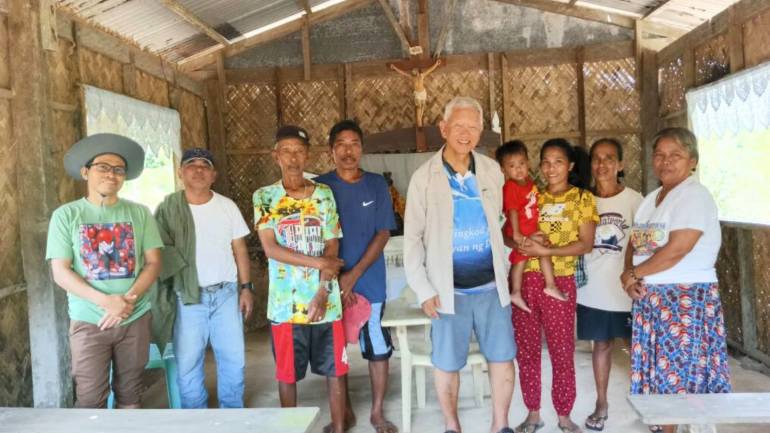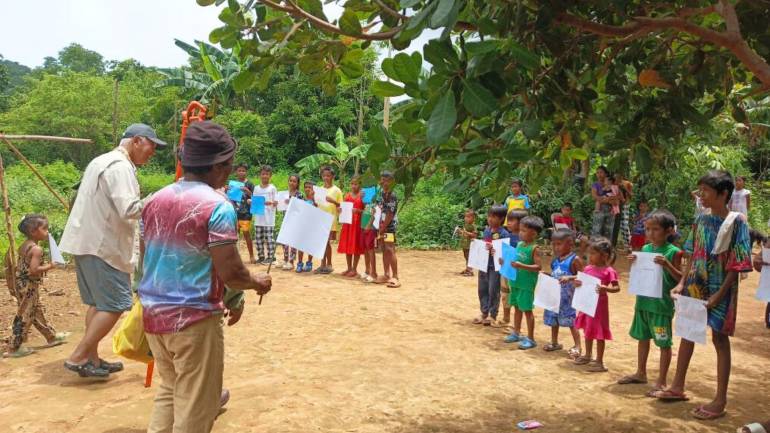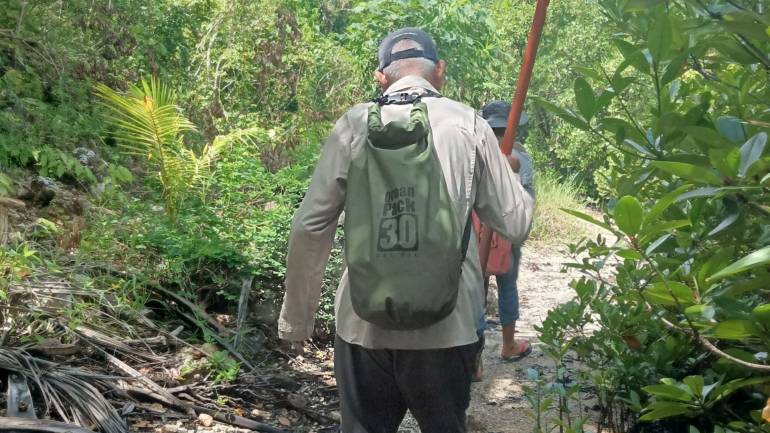“I was moved by people waiting for me”

Despite heavy rains and floodwaters, Bishop Broderick Soncuaco Pabillo, Vicar Apostolic of Taytay, Philippines, made a pastoral visit to the remote island community of Cagait in Culion, Palawan, from September 13 to 15, 2025.
The 70-year-old bishop, known for his outspoken stand against social injustice and corruption, waded through rivers and muddy paths to reach the faithful. His crosier, usually carried as a liturgical symbol, became both a staff of service and a source of support along the difficult journey.
The pastoral visit formed part of the Apostolic Vicariate of Taytay’s continuing efforts to strengthen mission areas and accompany communities in the peripheries.
In an exclusive interview with Radio Veritas Asia, the septuagenarian bishop spoke about his pastoral visit, his mission experience, the faith of simple people, and the Church’s call to reach out to those living on the margins.
Excepts:
Congratulations, Your Lordship, on your recent pastoral visit to the island community of Cagait in Culion, Palawan. Pictures of you wading through waters, staff in hand, went viral, a testimony to the Church’s care for those in the margins.
Thank you. I just did my job. I am a shepherd, and I visited my people.

What message did you bring to those faithful living in far-flung communities?
The message I gave to them is that they are not forgotten. My visit gave them great hope and joy.
How did the community welcome you?
With love and joy. I was always deeply moved by people waiting for me , sometimes for a long time, because there is no communication, with their flaglets, songs, and dances. I am also impressed by the food they prepare, not just for me but for the whole community. Everybody joins the fiesta.
What touched you the most during your visit?
The faith and the resilience of the people. They built their chapels, maintain them, and come together to pray. There were times that the communities in Culion were visited by priests only once or twice a year, but they remained in the faith. Now that they are visited more often, at least once a month, they are even more strengthened.

What are the challenges you face in serving these far-flung communities?
The challenge in serving communities in far islands and areas is that it is difficult to reach them, especially when the weather is bad. Another challenge is communication, since there is no electronic signal. Formation in the faith is also difficult because catechists cannot easily reach them. We try to train local catechists and lay ministers. But they themselves find it challenging, financially and geographically, to come to the center where the trainings are given.
Why do you think it is important for you to go to the far-off mission stations in person?
I make the effort to reach the far-flung areas to fulfill the mandate of the Church to go to the peripheries. We have to be a missionary Church.
Visits by the bishop and priests are very important in building true faith communities, right?
Absolutely. I strongly believe in that. That is why I made the trip, despite the challenges. I hope other dioceses too make the effort to reach the peripheries. I always tell my priests that they should visit the more than 550 chapels we have in the vicariate at least once a month. I also encourage them to have house visitations.
Your message to missionaries serving in Asia?
People are ready for the faith, and faith is nurtured by relationships. The least we can do is to be physically in touch with them so they can see us and speak to us. In many places where I visit, it is the first time for them to meet a bishop. So I always bring with me the staff and the mitre so they can experience, even visually, a Mass with the bishop. I always celebrate Mass with them, even if there are only 20 people or less. They have made the effort to come and to wait for me.
Go, reach out, be with the people. That is the only way we can truly be Church.








